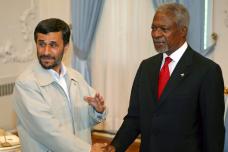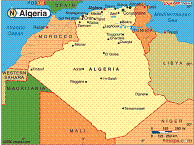 A minisubmarine inspecting the wreck of the Solar 1 on Friday found an open oil compartment and another one leaking small quantities of oil. They reported that not only had the oil spill not ceased but that the rest of it was waiting to rupture. Deafening silence greeted this around the world. Article continues here ...
A minisubmarine inspecting the wreck of the Solar 1 on Friday found an open oil compartment and another one leaking small quantities of oil. They reported that not only had the oil spill not ceased but that the rest of it was waiting to rupture. Deafening silence greeted this around the world. Article continues here ...Tuesday, September 05, 2006
[petron-solar 1] disaster around the corner, surmise japanese
 A minisubmarine inspecting the wreck of the Solar 1 on Friday found an open oil compartment and another one leaking small quantities of oil. They reported that not only had the oil spill not ceased but that the rest of it was waiting to rupture. Deafening silence greeted this around the world. Article continues here ...
A minisubmarine inspecting the wreck of the Solar 1 on Friday found an open oil compartment and another one leaking small quantities of oil. They reported that not only had the oil spill not ceased but that the rest of it was waiting to rupture. Deafening silence greeted this around the world. Article continues here ...[far-east] bankruptcy law change signals cultural change

The new Chinese law regarding the bankruptcies of state owned enterprises is a major move. Effectively, creditors now have top priority in liquidation moves, as distinct from the old ‘state nanny’ which was committed to paying off the workers first and then the creditors. This is not just a legal change, nor even a work practice change - it means a radically different mindset and a commitment to vigorously compete within the world economy. Story here.
Monday, September 04, 2006
[dress and fashion] to tie or not to tie
 BBC Magazine ran this in February but today, as I discarded the tie in scorching twenty degree temperatures, the mind went back to the topic:
BBC Magazine ran this in February but today, as I discarded the tie in scorching twenty degree temperatures, the mind went back to the topic:Doctors should stop wearing ‘functionless’ ties which could pose a hygiene risk, says the British Medical Association - as part of the drive to stop the spread of hospital superbugs. So what is the point of a tie? Full text here.
[health] you might have wilson’s syndrome
 Do you suffer from cold the way I do? Possibly not - because I think I might have a nodding acquaintance with Wilson’s Syndrome. Chronic low body temperature, also known as Wilson's Syndrome, is related to many other syndromes.
Do you suffer from cold the way I do? Possibly not - because I think I might have a nodding acquaintance with Wilson’s Syndrome. Chronic low body temperature, also known as Wilson's Syndrome, is related to many other syndromes.Whenever I’m feeling poorly, the first question, the standard question over here is always, ‘Do you have a temperature?’ ‘No.’ ‘Oh well then,’ they reply, meaning that I’m just a malingering n’er-do-well. But is it so? Story here.
[middle-east] hezbollah seeking out lebanese defectors
You may have seen this one already:
Next to a UN jeep, the Hezbollah intelligence men had parked their aging white Mercedes. One of them had flattened himself behind the chassis and was watching a Lebanese man on the Israeli side through binoculars.
"If you come with me, we'll go in and get that m*********r back," another Hezbollah man told a member of the international press. "They won't shoot at a journalist," he whispered in an aside in Arabic to his colleague.
With Hezbollah and the UN men having overheard the Lebanese man conversing with the Israelis in Hebrew, they were almost certain that he was an agent of the Jewish state trying to escape the wrath of a victorious Shi'ite political party that claims to have routed Israel over 34 days of conflict.
Analysts say Israel used Lebanese collaborators who remained in the south after its forces' withdrawal in 2000 as human intelligence to identify Hezbollah cadres in each village.
A Shi'ite source with good connections to Hezbollah and local knowledge said that only the houses of Hezbollah members were destroyed in his southeastern village of Blaat. The Hezbollah center of Khiam - formerly a base for Israel's proxy South Lebanon Army - was also largely wrecked from shelling, air strikes and pitched battles between Hezbollah and Israeli soldiers.
Since the latest war, Hezbollah has been particularly anxious to dismantle Mossad networks inside Lebanon that have used everyone from a Druze villager in the southern village of Hasbaya to Sudanese doormen in Beirut's Shi'ite al-Daahiah suburbs to pinpoint buildings affiliated with Hezbollah or that house its cadres.
Israeli intelligence has reportedly equipped collaborators inside Lebanon with radios and sophisticated satellite equipment to stay in contact and receive sensitive information on Hezbollah's movements. In one case, it was discovered that Israeli spies in south Beirut were marking buildings with crosses that were invisible to the naked eye but could be detected by sensors inside Israeli fighter jets.
In addition, an Israeli website specializing on intelligence affairs (www.debka.com) revealed that Hezbollah's security service has begun, in the northern Bekaa Valley, Baalbek and southern Lebanon, rounding up people suspected of tipping off Israeli intelligence on the location of the storehouse holding long-range, Iranian-supplied Zelzal missiles.
Iason Athanasiadis is an Iran-based correspondent with Asia Times.
[oil and gas] afghanistan stymied by uprising
 Stay with this one. This is how a nation’s fortunes can be dashed by local issues.
Stay with this one. This is how a nation’s fortunes can be dashed by local issues.Anti-government violence in Pakistan has followed the killing of a tribal leader by the military. On Tuesday, explosions and gunfire were reported after more than 10,000 people attended memorial prayers for Nawab Akbar Bugti, who was fighting for greater autonomy for his gas-rich but underdeveloped province of Balochistan. Pakistani government helicopter gunships and ground troops attacked his mountain cave hide-out.
With about 6 million people, Balochistan's population is almost half that of Pakistan's biggest city, Karachi. But in terms of mineral wealth it is the country's richest region. Islamabad has been planning a deep-sea port at Gwadar and a road link through Afghanistan to Central Asia from the province.
The TAP, which would carry natural gas from Turkmenistan to India through western Afghanistan, would pass through Balochistan. An alternative route through Pakistan's North West has been threatened by the resurgence of the Taliban.
The 2,000km pipeline deal was in the final stages of approval with the Asian Development Bank (ADB), and without the huge India market, the project, which is estimated to cost US$2-3 billion [one estimate pitches the final cost at $7 billion], may not be profitable.
But domestic security concerns in Afghanistan and Pakistan and an armed uprising led to the setting up of a force of trained and semi-trained tribesmen known as the Balochistan Liberation Army (BLA). Pakistani authorities have maintained that Bugti tacitly supported both these forces and the unrest.
Pakistan's Human Rights Commission has documented widespread violations by security forces but Islamabad says they were required to secure domestic gas installations.
Last week, a top Indian official in Delhi confirmed the participation of a high-level team in the TAP meeting next month as a partner-in-the-project and yet India seems to have got cold feet over the violence; political commentators speculate that it may be strong opposition from the United States that has made India put the deal on the back-burner.
Due to its location between the oil and natural gas reserves of the Caspian Basin and the Indian Ocean, Afghanistan has long been a potential energy transit corridor. During the mid-1990s, US-based Unocal had pursued a possible natural gas pipeline from Turkmenistan's Dauletabad-Donmez gas basin via Afghanistan to Pakistan, but pulled out after the US missile strikes against Afghanistan in August 1998.
Thus, the stirring up of local unrest threatens the prosperity of three nations and maybe even four.
Sunday, September 03, 2006
[poll] results on the topic of seasons
The last poll is closed. Results for the question: During which season do you feel most comfortable? were:
38% spring - predictable
0% summer - big surprise
12% autumn - nice
50% winter - I'm not alone
One reader wrote: Tempest. The new poll is open, if you'd care to vote.
38% spring - predictable
0% summer - big surprise
12% autumn - nice
50% winter - I'm not alone
One reader wrote: Tempest. The new poll is open, if you'd care to vote.
[algeria] the western veil of silence
I think if you look at the comments section of stephenpollard.com you’ll see ample evidence of digs at the Jews. In case that’s not enough, I invite you to send me researched material on Jewish atrocities and I’ll gladly run it.
More than once I’ve looked at the actions of the Irgun, the Lehi/Stern gang, Lord Moyne, Martin and Paice, to name but a few.
I’m not Jewish, I hold no candle for the Jews and I’m as critical as anyone has a right to be. On the other hand, articles such as the following from Gary Brecher are interesting, if only because no one else seems to be addressing this issue. There is a wall of silence from Nizhni Novgorod to New York.
Why? Brecher’s article offers one explanation. Warning – though it is written in a jaunty, readable style, the content is fairly unpalatable if you have a queasy tummy:
Some wars make it onto the TV news, and some don't. It's got nothing to do with how bloody or big they are. There are lots of pathetic little "wars" that get more press than they deserve.
[celestial regions] do you know your angels
 Most of us would have to admit we wouldn’t recognize an angel if it bit us on the bottom. So how does one recognize that it’s – er – an angel we’re dealing with? I mean - do you know your order of angels and their hierarchies?
Most of us would have to admit we wouldn’t recognize an angel if it bit us on the bottom. So how does one recognize that it’s – er – an angel we’re dealing with? I mean - do you know your order of angels and their hierarchies? On the grounds of better-be-safe-than-sorry, maybe it’s time you got the whole angel thing down pat in your mind … just in case, you understand.
Firstly, the Angels are organized into several orders, or Angelic Choirs. There are three Hierarchies, Spheres or Triads of angels, with each Hierarchy containing three Orders or Choirs. In descending order of power, these were:
First Hierarchy: Seraphim, Cherubim, Thrones [or Ophanim]
Second Hierarchy: Principalities, Virtues, Powers
Third Hierarchy: Dominions, Archangels, Angels
During the Middle Ages, many other schema were proposed, some drawing on and expanding on Pseudo-Dionysius, others suggesting completely different classifications but don’t heed them, the revisionists.
We’re all familiar with the lower orders because these are the ones certain people come into contact with but what of the ones you never see up there? The angels of the first sphere were thought to serve as heavenly counsellors.
Seraphim: There are four of them surrounding G-d's throne, where they shine eternally from love and zeal.
Cherubim: The Cherubim (singular "Cherub") are beyond the throne of G-d; they are the guardians of light and of the stars. They have four wings. They also have four faces, one of man, ox, lion and eagle. Cherubim are considered the elect beings, for the purpose of protection.
Thrones: The Ophanim are the companion angels of the planets. Also, they have been described as a wheel intersected by another wheel. One to move forward and back, the other to move side to side. These wheels are then dotted with innumerable eyes.
Now, I can’t see why it can't be so. In fact, I can believe anything, however improbable it might seem, just as Sherlock Holmes could plus the other side also believes in these things. Ask any 32nd degree Mason about it or failing that, ask Osiris.
For the atheists and rationalists out there – you can’t prove beyond doubt they don’t exist, can you; and proof is very important to you guys, isn’t it? On the other hand, there are ample indicators which keep coming back from time to time, that something's going on up there.
Perhaps we should just take the classic atheistic position, put the head in the sand and say angels don’t exist. Period.
Firstly, the Angels are organized into several orders, or Angelic Choirs. There are three Hierarchies, Spheres or Triads of angels, with each Hierarchy containing three Orders or Choirs. In descending order of power, these were:
First Hierarchy: Seraphim, Cherubim, Thrones [or Ophanim]
Second Hierarchy: Principalities, Virtues, Powers
Third Hierarchy: Dominions, Archangels, Angels
During the Middle Ages, many other schema were proposed, some drawing on and expanding on Pseudo-Dionysius, others suggesting completely different classifications but don’t heed them, the revisionists.
We’re all familiar with the lower orders because these are the ones certain people come into contact with but what of the ones you never see up there? The angels of the first sphere were thought to serve as heavenly counsellors.
Seraphim: There are four of them surrounding G-d's throne, where they shine eternally from love and zeal.
Cherubim: The Cherubim (singular "Cherub") are beyond the throne of G-d; they are the guardians of light and of the stars. They have four wings. They also have four faces, one of man, ox, lion and eagle. Cherubim are considered the elect beings, for the purpose of protection.
Thrones: The Ophanim are the companion angels of the planets. Also, they have been described as a wheel intersected by another wheel. One to move forward and back, the other to move side to side. These wheels are then dotted with innumerable eyes.
Now, I can’t see why it can't be so. In fact, I can believe anything, however improbable it might seem, just as Sherlock Holmes could plus the other side also believes in these things. Ask any 32nd degree Mason about it or failing that, ask Osiris.
For the atheists and rationalists out there – you can’t prove beyond doubt they don’t exist, can you; and proof is very important to you guys, isn’t it? On the other hand, there are ample indicators which keep coming back from time to time, that something's going on up there.
Perhaps we should just take the classic atheistic position, put the head in the sand and say angels don’t exist. Period.
Subscribe to:
Posts (Atom)

